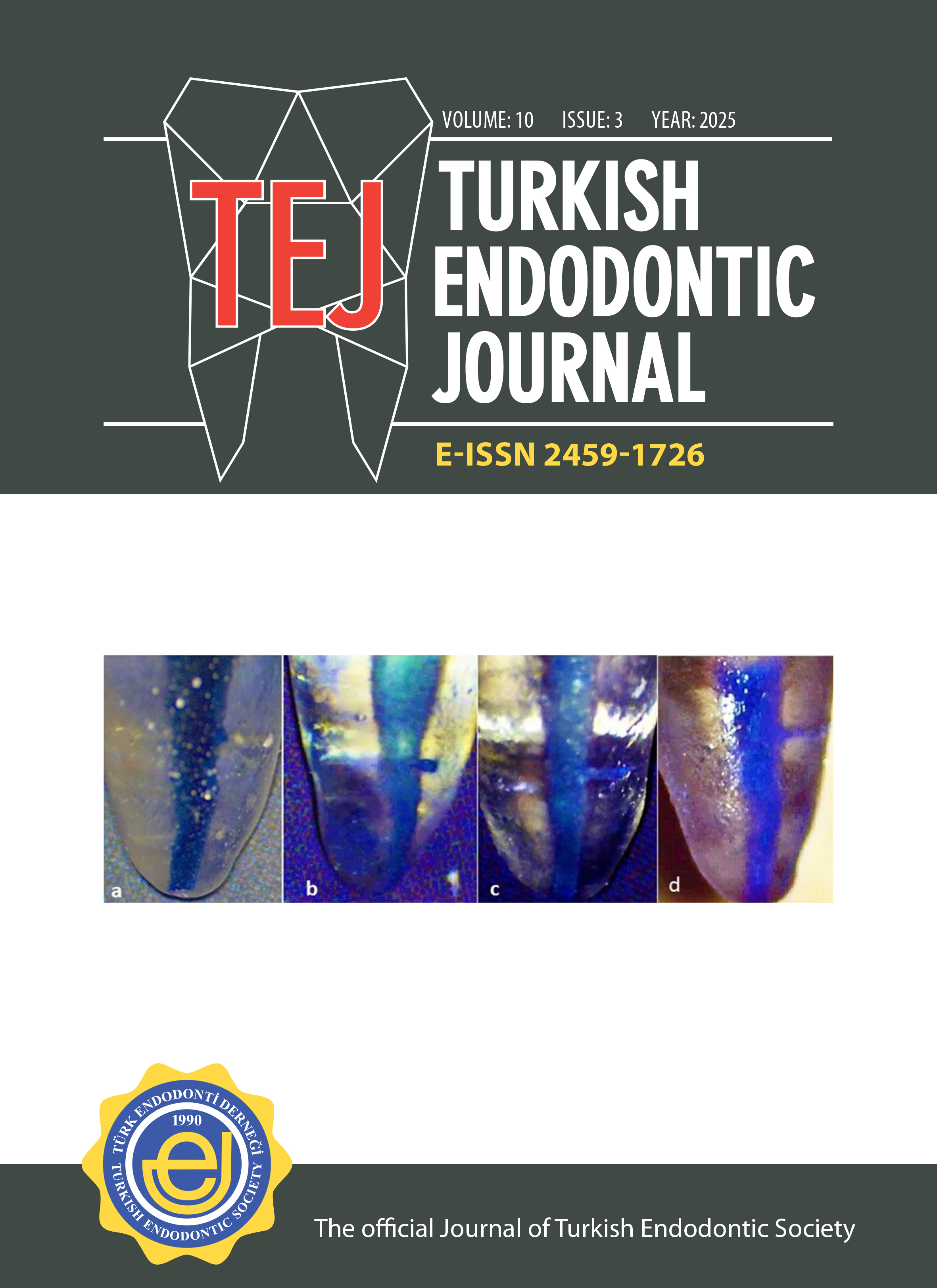The effect of cooling Reciproc instruments prior to preparation on cyclic fatigue resistance at simulated body temperature
Hakan Arslan1, Ezgi Doğanay Yıldız2, Gizem Taş3, Oğuz Bayındır4, Hüseyin Sinan Topçuoğlu51Department of Endodontics, İstanbul Medeniyet University Faculty of Dentistry, İstanbul, Turkey2Department of Endodontics, Bursa Uludağ University Faculty of Dentistry, Bursa, Turkey
3Çorlu Oral and Dental Health Hospital, Tekirdağ, Turkey
4Department of Chemistry, Atatürk University Faculty of Science, Erzurum, Turkey
5Department of Endodontics, Erciyes University Faculty of Dentistry, Kayseri, Turkey
Purpose: This study aimed to examine the effect of cooling Reciproc endodontic files prior to preparation on their cyclic fatigue life at simulated body temperature.
Methods: Sixty-four Reciproc R40 files were randomly split into 4 groups (n = 16), as follows: control, cooling at −50°C, cooling at −16°C, and cooling at −80°C groups. The files were used in a simulated metal canal with a curvature of 90° and a radius of 3-mm. The metal block was submerged in a water tank adjusted to a temperature of 37°C. The time to file fracture and the length of the broken fragment were measured and recorded. The data were analyzed using a Kruskal–Wallis H test.
Results: The time to fracture was significantly lower in the control group compared to the cooling groups (p< 0.05). No differences in the time to fracture (p> 0.05) were observed between the cooling groups, and all groups exhibited similar length of the fractured fragments (p> 0.05).
Conclusion: Within the limitations of this study, it can be concluded that cooling Reciproc R40 files using different methods prior to preparation improves its cyclic fatigue resistance.
Keywords: Cooling, cyclic fatigue, Reciproc.
Manuscript Language: English



















